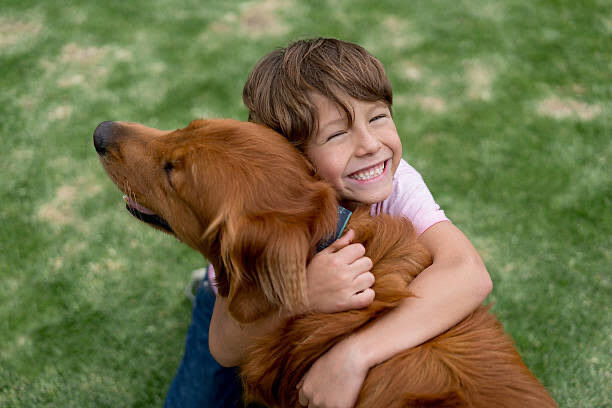How empathy for Animals heals us

Hyderabad: You don’t need to own a pet to feel the quiet comfort animals bring. Sometimes, it begins with feeding a stray dog outside your gate, giving water to birds on a summer day, or stopping to help an injured kitten.
Acts like these may seem small, but psychologists say they can profoundly impact mental wellbeing. On World Animal Day, it’s worth understanding how empathy toward animals is linked not only to a kinder world but also to a calmer mind.
“Caring for an animal triggers a deep sense of purpose and connection,” explains Dr. Rachita Mehra, clinical psychologist speaking to Newsmeter. “It takes people out of self-focused thinking patterns, especially during stress or depression, and redirects emotional energy into something nurturing.”
How Compassion Affects the Brain
When humans engage in caring behaviours, whether toward another person or an animal, the brain releases oxytocin, a hormone linked to bonding and emotional regulation. This, in turn, reduces cortisol, the primary stress hormone.
According to Dr. Sandeep Bhat, a neuropsychologist and researcher in human-animal interaction, “Feeding or helping an animal activates the same reward circuits in the brain that respond to social connection. Even brief, positive encounters, such as petting a dog or watching fish swim, can lower blood pressure and heart rate.”
A 2023 study from the University of Vienna found that individuals who regularly interacted with animals, even outside pet ownership, showed lower markers of inflammation and reported higher life satisfaction. The effect, researchers said, comes from the sense of reciprocity, the feeling that your care visibly improves another being’s life.
Emotional Regulation Through Responsibility
Helping animals also creates structure and mindfulness. For many people, especially those coping with anxiety or loss, daily acts like feeding stray dogs or volunteering at shelters establish small, grounding routines.
“Routine gives people a sense of stability,” says therapist and animal-assisted therapy specialist, Dr. Rina Joseph. “When you know an animal depends on you for food or comfort, it encourages responsibility, consistency, and empathy, all of which are protective factors for mental health.”
Volunteers often describe the act of caregiving as meditative. The focus shifts from overthinking to simply doing. Psychologists call this the attention-restoration effect, where the mind’s cognitive load lightens in the presence of nature or animals, allowing calm and clarity to return.
The Ripple Effect of Empathy
Animal-care psychologist Dr. Arvind Iyer notes that showing kindness to animals strengthens what he calls “compassion literacy” —the capacity to feel and act with empathy in daily life. “When someone learns to understand the needs of a frightened or hungry animal, that awareness often translates into how they treat people,” he explains. “It cultivates patience and emotional sensitivity.”
In fact, schools and counselling programs worldwide are introducing humane education modules, where students learn about compassion through animal welfare projects. Studies show such programs significantly reduce aggression and improve emotional intelligence scores among adolescents.
Healing Without Ownership
While pets offer companionship, the reality is that not everyone can or should bring an animal home. But compassion doesn’t require ownership. Urban India has seen a growing movement of people who feed street dogs, provide water bowls for birds, or fund sterilisation drives.
Animal rescuer Meghana Rao, who runs a volunteer group in Hyderabad, says she first started helping street animals after her father’s passing. “It gave me something meaningful to wake up for,” she says. “When you see an injured animal recover, it’s like a mirror, you realise healing happens in both directions.”
Researchers agree that this reciprocal healing, where human and animal wellbeing feed into each other, is a crucial part of emotional resilience.
Beyond Altruism
Helping animals is not only about compassion; it’s a practical tool for emotional recovery. People dealing with burnout, grief, or loneliness often find that interacting with animals helps them regulate mood and rebuild trust in connection.
“Unlike humans, animals respond without judgement or expectation,” says Dr. Mehra. “That emotional neutrality is therapeutic. It allows people to give love freely, and receive it in a form that feels safe.”
Quick Facts: How Helping Animals Affects Mental Health
1. Oxytocin Boost:
Feeding or interacting with animals increases oxytocin, the “bonding hormone” that promotes calmness and social connection.
2. Cortisol Reduction:
Studies show animal contact can lower cortisol levels (stress hormone) within 15–20 minutes, helping regulate mood and anxiety.
3. Heart Health:
Petting or observing animals can slow heart rate and reduce blood pressure, improving cardiovascular regulation over time.
4. Attention Restoration:
Being around animals or nature helps restore focus and reduce mental fatigue, especially after long hours of screen use.
5. Routine as Regulation:
Feeding, walking, or caring for animals adds structure and daily purpose, key tools in managing depression or grief.
6. Emotional Mirror:
Animals respond to human tone and energy, teaching empathy, patience, and emotional awareness through interaction.
7. Social Connection:
Animal-related volunteering builds community and reduces loneliness, especially in urban environments.
8. Compassion Spillover:
Regular kindness toward animals enhances prosocial behaviour, people become more patient and cooperative in other relationships too.
A Gentle Reminder
On World Animal Day, the message is simple: kindness is not a grand gesture; it’s a daily act of empathy. Every bowl of water, every rescued bird, every meal left out for a stray adds up, not only for the animals that benefit, but also for the human spirit that gives.
In caring for another species, we’re reminded of something deeply human, that connection heals, and compassion, in all its quiet forms, is therapy too.
Source link

